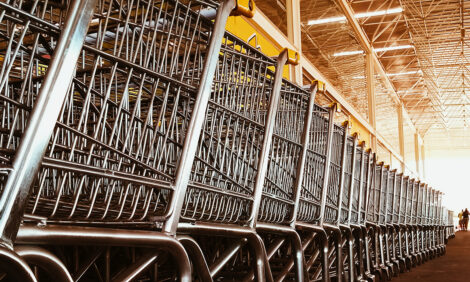



Improved Welfare Expected to Affect Future Danish Pig Markets
DENMARK - Key players in the Danish pig industry have good intentions when it comes to animal welfare, but financial considerations often get in the way of implementing change, according to a new report by researchers from the University of Copenhagen and Aarhus University.Associate Professor Lars Esbjerg, from the research centre MAPP at Aarhus School of Business and Social Sciences, is one of the authors behind the report.
He predicts that consumers of the future will demand increased animal welfare, and there will be a development towards increased animal welfare in Denmark, but it is going to take time.
According to Mr Esbjerg, getting consumers to purchase more meat produced in high welfare standards requires a significant change in the consumers’ attitudes.
“Retailers need to follow the development closely. The industry must stand out more.
"It’s not sustainable to focus on cheap pork chops.
"The consumers of the future are prepared to take responsibility for their own actions and choices, which means that they will want to buy more pork that has been produced under animal-friendly conditions,” said Mr Esbjerg.
Danish politicians have had a specific mantra that the market itself should promote animal welfare improvements. The focal point of the new report has been to investigate the possibilities for increasing animal welfare in Danish piggeries based on requests by the market.
Animal welfare considerations around the world
Mr Esbjerg and his research colleagues examined the markets in Great Britain and the US, where animal welfare is already an important point on the political agenda, and Sweden, China and Australia, where it is increasing in importance.
According to Mr Esbjerg, the retailers in Great Britain and Sweden set high demands for animal welfare.
Both countries have a long tradition of closely focusing on animal welfare, and there is a prevailing view that nationally produced pork is better than imported products. This is mainly due to the fact that these countries wish to safeguard their own production.
However, the reason why British retail chains strongly emphasise animal welfare is that they want to avoid negative publicity, and the same tendency is evident in the US.
In Sweden, the situation is quite different. Animal welfare in Sweden is described as a matter of course and a natural part of the Swedish market practice.
The study shows that there is a general tendency among citizens in all these countries to want to take responsibility for their own actions.
The situation in Denmark
In Denmark, the majority of all retail chains consider price to be the most important competition parameter, and there is general consensus in the industry that welfare meat only constitutes a small market.
The Danish pig industry also believes that initiatives towards the general improvement of animal welfare should only take place if they do not have a negative impact on the international competitiveness of the industry.
However, Mr Esbjerg predicts that in the future animal welfare will be a necessary focal point in order for the industry to remain competitive.
The researchers’ work shows that animal welfare is slowly gaining in importance in the Danish market, and the developments in the international markets will inevitably influence the value chain for Danish pigs.
Mr Esbjerg explained: “In Denmark, the pig industry has been very good at standardising its production, and they are in the lead in the area of food safety.
"But competitors in other countries follow right behind Denmark and have almost reached the same level as us.
"For that reason, the Danish pig industry is forced to consider the long-term perspective and must set itself apart in order to be able to make a difference in the future.
"The industry needs to adopt more competitive advantages in the future – and there is no way to escape animal welfare.”
You may also like:






